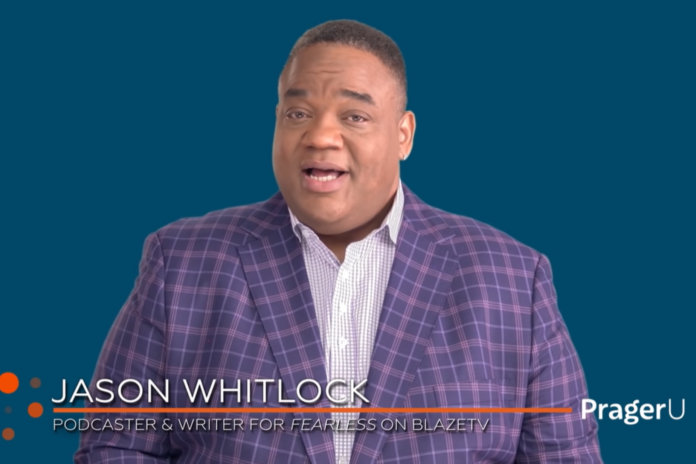(PragerU) — Pro sports has become woke sports. And that’s a problem — not just for athletics, but for all of us.
“Sport has the power … to unite people in a way that little else does … It is more powerful than governments in breaking down racial barriers. It laughs in the face of all types of discrimination.”
Nelson Mandela spoke those words. The Nobel Peace Prize recipient understood the power of sports to bring disparate people together. There is no better example of this than the famous victory of South Africa’s mixed-race team in the 1995 Rugby World Cup. Mandela’s presentation of the winner’s trophy to team captain Francois Pienaar stands as an iconic symbol of unity in post-apartheid South Africa.
Sports have served as a powerful racial unifier in America as well. This is not new. It goes back decades.
In 1936, the great black sprinter and long jumper Jesse Owens won four gold medals at the Berlin Olympics. In 1938, the great black boxer, Joe Louis, scored a first-round knockout over German heavyweight Max Schmeling. The Owens and Louis victories punctured Hitler’s Aryan superiority myth, unified black and white Americans in pride and celebration, and established Owens and Louis as America’s first black national heroes.
Jesse Owens and Joe Louis laid the foundation for Brooklyn Dodgers General Manager Branch Rickey’s partnership with black baseball legend Jackie Robinson to integrate Major League Baseball in the late 1940s. That, in turn, inspired Martin Luther King, Rosa Parks, and the civil rights movement of the 1950s. Barack Obama credited Robinson for his political rise. “There’s a direct line between Jackie Robinson and me standing here,” said America’s first black president.
Obama saw what Mandela saw — how sports transcends all barriers: “When you see this group of folks of different shades … coming from different communities … and then playing as one team … and celebrating each other and being joyous in that, that tells us … something about … America.” Sports, in other words, is the ultimate equalizer.
In competition, what matters is winning. That means excellence matters. And both are colorblind. Sports allow us to experience the power of pure meritocracy — the only way to govern sports, and the only way to govern life.
But now, all this storied history and the positive message of sports are being undone. In September 2016, NFL quarterback Colin Kaepernick took a knee — that is, refused to stand — during the national anthem. His defenders say his protest wasn’t about the flag. But Kaepernick said otherwise. “I am not going to stand up to show pride in a flag for a country that oppresses black people and people of color,” he told the press. We all know what happened next. Players across the NFL followed Kaepernick’s lead, kneeling, locking arms, and even raising fists during the national anthem. Then athletes from other sports joined in.
Ironically, just as sports have the power to unite, we have discovered they also have equal power to divide.
On Opening Day 2021, Major League Baseball Commissioner Rob Manfred stripped Atlanta of the All Star Game as punishment for Georgia politicians’ passage of a voter integrity bill. Bowing to the political mob that casts half of America as racist, the move fractured baseball’s fan base.
The entire American sports world — a culture that celebrated victors, colorblindness, and patriotism — has immersed itself in victimization and left-wing radicalism. This immersion threatens permanent damage, both to American sports and to the larger American culture.
Once again Kaepernick takes the lead. He no longer plays football. He is now a professional influencer. He hawks his political message in partnership with Nike, the $40-billion-a-year puppet master of American sports. Kaepernick, LeBron James and Nike’s other brand influencers are making millions off amplifying racial wounds. It’s a cynical and brilliant business strategy. It explains why pro sports, especially the National Basketball Association, seem more concerned about how they are perceived in China than they are here in America. China is a huge market. Its 1.4 billion citizens have far more sneaker spending power than America’s 333 million.
It’s simple math. The $8-billion-a-year NBA is the marketing arm of Nike’s $40-billion-a-year global business. To state it plainly: Nike is driving American sports.
That’s why team owners, coaches, and players are so willing to call America racist, but remain silent on China’s egregious treatment of its minorities and suppression of freedom in Hong Kong.
Ultimately, the fans hold the power. They buy the tickets, the shoes and the merchandise. Watch what they do. If they accept sports as just another arena to fight political battles, you’ll know dark days are ahead. If they reject it, we’ll be headed back to a brighter future.

















